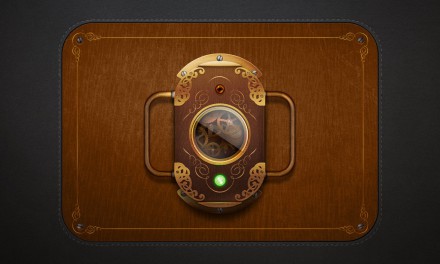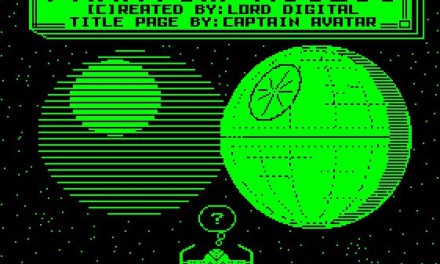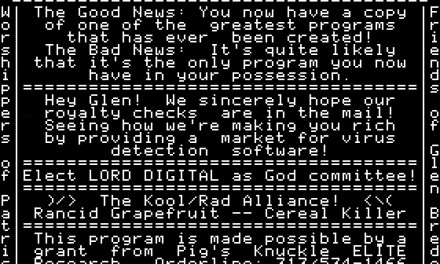Memoirs of a Cybernaut
In the 1980s, most online explorers were so caught up in the romance and novelty of cyberspace that they showed little interest in analyzing their motives or the nature of the medium they were helping to create.
Patrick Kroupa was an exception. Driven by a sense of wonder and a helping of hubris, he wrote many commentaries on the electronic continuum. The text below is a greatly abridged version of a long piece chronicling the decline of idealism online – which ultimately led Kroupa to start MindVox with his partner Bruce Fancher, in an effort to recapture some of the old spirit.
–Charles Platt
By Patrick Kroupa
Led by an oddball contingent of misfits, dropouts, acid-heads, phreaks, hackers, hippies, scientists, and students, guys who could say “doOd, got any new wares?” with a straight face and really mean it, the 1980s saw the rise of the first empires and kingdoms of cyberspace.
When I first became an active participant in this electronic nervous system, I was a little over 10 years old. My early understanding of this “place” was shaped by a handful of people whose skills I admired and sought to emulate, yet whose lives I felt great pity and sadness for. They were building the cult of high tech in the hopes that it would somehow save them from whatever they thought had prevented them from attaining happiness anywhere else.
Everything really was this big beautiful game, and here we were with an overview of the whole jigsaw puzzle, and the sudden power to do anything we wanted to do with it. For the first time in recent history you could reach out and change reality, you could do stuff that affected everything and everyone, and you were suddenly living this life that was like something out of a comic book or adventure story….
It was a very interesting time and place in which to grow up. Of course, the problem was that a lot of us didn’t grow up.
One day you wake up and come to realize that you’re seventeen or eighteen going on 90. You understand that everything in the whole world is comprised of bits and pieces of lies and half-truths, everyone is inherently corrupt, including you; a lot of kids who used to be your friends are now all grown up with no place to go and getting busted for such things as fraud and grand larceny; and you have utterly lost touch with anything even remotely “real.”
We had spent our entire childhoods jacked into this alternate electronic universe, locked into playing our overly-developed personas, and almost no time figuring out who we were and what we wanted out of life beyond “further, better, more.” This is nothing new or unique in and of itself. It was however something that gained a very tangible and immediate importance to many of us when we found that the thoughtspace in which we had lived a large portion of our lives had disintegrated and the people we had known and called friends, had largely disappeared and been replaced by every negative quality they possessed.
A lot of us dumped the remnants of this reality into a stack of boxes and took off for parts unknown. Whether college, work, a new circle of friends that didn’t know who you were in cyberspace, or even know what cyberspace was; just about anywhere were we could start over and try to regain what had somehow been lost.
While this discourse is tangential to some of the issues at hand, in a great sense it is the underlying cause for all of them. Once you have seen the light as it were, or understood the bigger picture. . .it becomes very hard to go back to living life with blinders on regarding your own actions. Until it eventually reaches the place where I found myself. The point at which the only things I’m going to talk about are those that matter to me, things I believe in. . .things I believe will help people in some manner. Along with the realization that I cannot do a lot of things I used to do anymore. . .I had already spent most of my life taking apart the rules and winning at whatever game I tried to play. What I never bothered to examine was the fact that I didn’t “win” anything that ever brought me any happiness. . .what is the point in playing if you don’t want the “prize?”
The correct solution to the “quest” is, of course, that there is no solution. There is nothing you are looking for, except for you, and once you realize this, you win the big prize.








